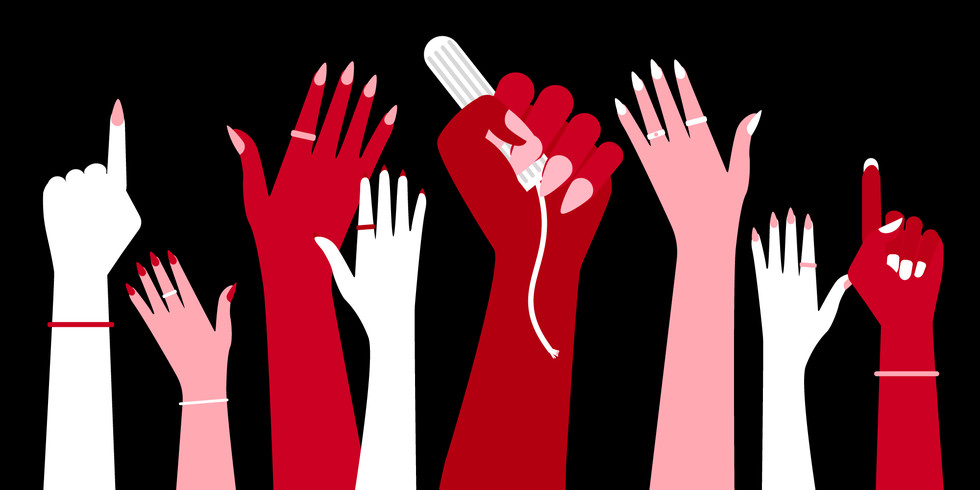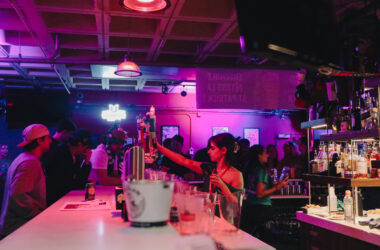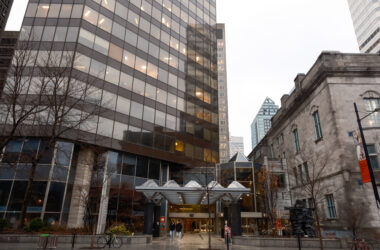In Nov. 2017, Chloé Pronovost-Morgan, Med 2, and Julia Coste, BA ‘19, launched Monthly Dignity, a non-profit organization that distributes menstrual hygiene products to unhoused people in Montreal. After founding the initiative, the duo realized that “period poverty” affects many diverse communities, including unhoused people, people living under the poverty line, single mothers, and students. Since the onset of the COVID-19 pandemic, financial precarity has made it harder to access basic resources on a day-to-day basis, and period poverty has only worsened.
While several countries such as Scotland and New Zealand have recently passed legislation confirming access to period products as a right, Canada has yet to commit to universal access, although it did eliminate taxes on tampons in 2015. The expense of menstrual hygiene products creates obstacles for those of lower socio-economic backgrounds. Pronovost-Morgan questioned why menstrual products are not always accessible in public spaces, when other essential hygiene products are readily available.
“The accessibility of toilet paper and soap is not a question that we ask ourselves,” Pronovost-Morgan said. “But how awkward would it be if you went into a public space and you did not have toilet paper?”
A recent global movement has seen a push by several nations to eliminate period inequity. Following in the Scotish government’s footsteps, which passed The Period Products (Free Provision) (Scotland) Bill in Nov. 2020, the New Zealand government announced on February 2021 that the country will be making menstrual products free in schools. Part of New Zealand’s Youth and Wellbeing strategy legally requires local authorities to ensure that those who need menstrual products can obtain them for free.
“This [legislation] is a completely new way of thinking about it, at least for me,” Pronovost-Morgan said. “When we started out we could not even conceive of a world where this is possible, but of course, we are drawing inspiration from Scotland and New Zealand.”
While Scotland and New Zealand are at the forefront of this movement, in the United States, 30 states still tax menstrual products as luxury items. In Canada, menstrual products are also taxed, but not as luxury items. Organizations like Period Packs and Period Promise have raised awareness in places like Ottawa and Vancouver, but no substantial systemic change regarding menstrual equity has occurred in Canada.
Brooklyn Frizzle, the Students’ Society of McGill University (SSMU) Vice-President University Affairs, is responsible for the coordination of menstrual hygiene products on campus. Frizzle discussed SSMU’s efforts to alleviate menstrual poverty during the pandemic.
“I can say that the SSMU Menstrual Hygiene Team has really made the best of a bad situation [by] reorienting our services away from our usual buildings and towards donations to community groups and campus services,” Frizzle said.
Plan International Canada claims that the pandemic has exacerbated the issue by highlighting a severe shortage of period products, a sharp rise in prices, and a lack of access to basic information all complicate period management for those already experiencing period poverty.
Community organizations, such as Montreal women’s shelter Chez Doris, are making similar strides by offering home deliveries for menstrual products. Marina Boulos-Winton, executive director of Chez Doris, claims that donations of menstrual products during the pandemic have not waned.
“Donations have been strong [and] people have been so generous.” Boulos-Winton said.
In the past three years since their launch, Pronovost-Morgan said the Monthly Dignity team has faced roadblocks to achieving their goal of universal access to menstrual hygiene products.
“We are limited by funds and partnership arrangements,” Pronovost-Morgan said. “We have gotten to the point where we think the government should step in [because] the problem is much bigger than we thought.”Monthly Dignity plans on expanding its community outreach, and has recently partnered with Project 10, an organization that aims to support the wellbeing 2SLGBTQIA+ youth.









